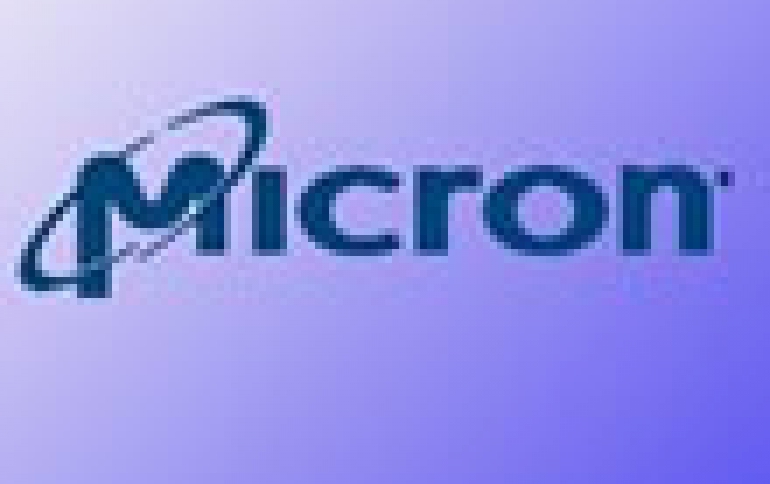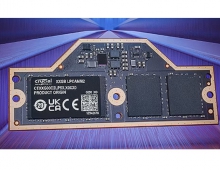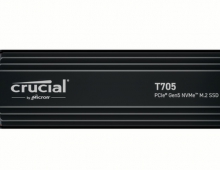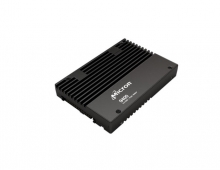
Micron Introduces The TLC-based 5100 Enterprise SSDs
Micron Technology today introduced the Micron Enterprise 5100 Series SATA solid state drive (SSD) family, all based on their 3D TLC NAND.
The new 5100 series is a full range of enterprise SSDs with capacities ranging from 240GB to 8TB and in three tiers of endurance and performance:
- Micron 5100 ECO: Cloud services focused, optimized for content sharing (video and media streaming). Performance and endurance characteristics for consistent data throughput and fast information delivery.
- Micron 5100 PRO: Designed to offer consistent performance delivery for latency-sensitive applications.
- Micron 5100 MAX: Meet demand of today's mission-critical data center.
Spare area ranges from a minimum of 15% on the density-focused 5100 ECO up to a massive 60% on the performance-focused 5100 MAX. Conversely, write endurance ratings vary from less than one drive write per day (DWPD) on the 5100 ECO up to 5 DWPD on the 5100 MAX. The 5100 ECO and middle-tier 5100 PRO offer M.2 models up to 2TB in addition to their 2.5" form factor models, while the 5100 MAX is only available as a 2.5" drive.
| Micron 5100 Series | ||||
| 5100 EVO | 5100 PRO | 5100 MAX | ||
| Form Factor | 2.5" (7mm) and single-sided M.2 2280 | 2.5" | ||
| Capacities | 480GB, 960GB, 1920GB, 3840GB, 7680GB (2.5") 480GB, 960GB, 1920GB (M.2) |
240GB, 480GB, 960GB, 1920GB, 3840GB (2.5") 240GB, 480GB, 960GB, 1920GB (M.2) |
240GB, 480GB, 960GB, 1920GB |
|
| Controller | Marvell 88SS1074 | |||
| Interface | SATA 6Gb/s | |||
| NAND | Micron 384Gb 32-layer 3D TLC | |||
| Sequential Read | 540 MB/s | |||
| Sequential Write | 380-520 MB/s | 250-520 MB/s | 310-520 MB/s | |
| 4KB Random Read (QD32) | 93k IOPS | 78k-93k IOPS | 93k IOPS | |
| 4KB Random Write (QD32) | 9k-31k IOPS | 26k-43k IOPS | 48k-74k IOPS | |
| Endurance | 0.45-8.4 PB | 0.6-?17.6 PB | 2.2-17.6 PB | |
| Encryption | Optional TCG Enterprise and FIPS 140-2 validation | |||
As enterprise SSDs optimized for consistent sustained performance, the 5100 series does not implement SLC caching and all writes go to TLC NAND. This means that the random and sequential write speeds of the lower-capacity models are impaired, but the larger models in each of the three tiers can saturate a SATA link with sequential writes.

The 5100 series uses Micron's 3D TLC and Marvell's 88SS1074 controller -- the same met in the 1100 series client SATA SSDs and the consumer Crucial MX300.
But the 5100 series adds full power loss protection and enterprise-focused firmware. In a feature Micron calls 'Flex Capacity' the divisions between the three product tiers can be blurred with manual over-provisioning.
Micron has introduced new FlexPro firmware architecture, which unifies design elements across all Micron's data center SSDs, enabling IT managers to tune specific drive features (capacity, security, endurance, power, data layout, data cleanup and performance).
FlexPro firmware architecture features first available in the 5100 SATA Series:
- Flex Capacity Feature
- Enables Micron's customers to tune 5100 capacity to deliver application and workload-optimized performance. Administrators save time with the flexibility to repurpose drives and servers for different kinds of workload traffic and application needs.
- Flex Security Feature
- Security features to protect data from unauthorized access. Helps address enterprise security concerns with data protection and encryption (AES-256 bit encryption, TCG-enterprise protection in a FIPS-validated SATA SSD) with zero performance impact.
The 5100 Series uses Micron's 3D TLC NAND while the rest are still based on planar MLC NAND. Micron expects the 7100 series successor to also switch to TLC when it adopts 3D NAND, so the successor to the 9100 series might be their first use of 3D MLC.
The different capacity and form factor options across the three tiers of the 5100 series adds up to 21 different models. Exact pricing has not been announced, but retail prices are expected to range from 45¢/GB to 75¢/GB depending on capacity and endurance tier, and high-volume direct sales will be cheaper.





















